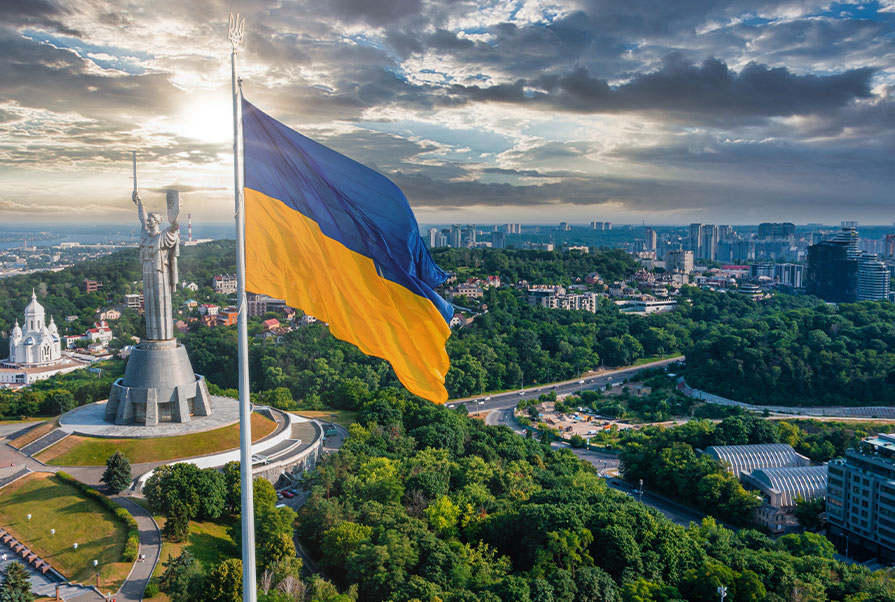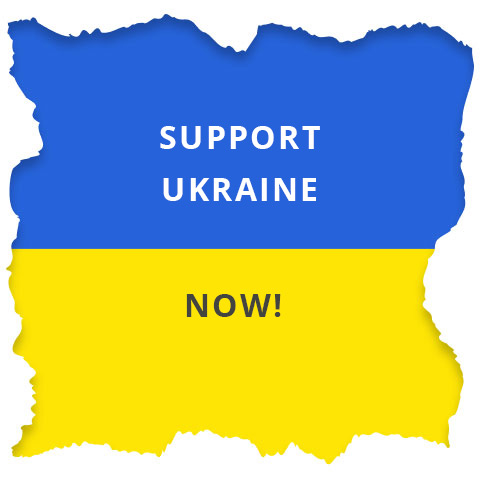Natalia Prykhodko’s family have already packed their suitcases when the Russian invasion begins on February 24th. In the early morning hours, their 9-year-old daughter is awoken by two fighter jets thundering past the windows of their apartment. “The war has started”, Natalia says. The family lives in the centre of Poltava, a town of about 300,000 in central Ukraine, about 100 kilometres south-east of Kharkiv. The family is not surprised by the Russian attack as the conflict has been smouldering for too long.
Natalia and her husband have a plan.
They want to stay with her parents, who have a house on the outskirts of the town. It holds the prospect of more safety than the huge housing complex in the town centre where they live.
They get into the car with their two children. It’s so early that the streets are almost empty. They arrive safely. Natalia teaches medicine at university, but she cancels all her activities and advises her students to get to safety too.
The air raid sirens in Poltava go off on a daily basis.
The family soon settles in the basement of the house. It’s cold there, but a little safer.
They stay at her parents’ house until March 5th. After the heavy bombardment of Kharkiv, the metropolis in Eastern Ukraine, the family decides that Natalia, her children, and her sister with her son should try to get out of the country. Her husband stays. They don’t really have a plan for their trip to safety and decide to try their luck with trains. At six in the morning, they’re waiting at the train station in Poltava with only the most basic necessities in some rucksacks.
The train station is hopelessly overcrowded, there’s chaos everywhere. Two trains have been cancelled. When the next train arrives, everybody tries to get on. She is holding the hand of her 5-year-old son but suddenly she loses sight of her daughter. She can only faintly hear her voice. That’s when she realizes she could get separated from her kids in this chaos.
Fortunately, they all manage to get onto the same train, albeit in two different carriages. The jostling continues on the train.
Natalia spends the complete 15 hours on the train standing until they reach Lviv in Western Ukraine. At least the children can sleep sitting on their rucksacks.
It gets scary when they pass Kyiv.
The lights in the train are turned off and the curtains are drawn shut. The whole city of Kyiv is completely dark. Everybody is listening intensely for sounds of explosions or attacks, but there’s nothing.
Volunteers welcome the refugees in Lviv, and Natalia, her sister, and the kids can stay overnight at a friend’s place. The next day, a volunteer drives them to the Polish border, where the refugees are registered in groups of one hundred. There are blankets, hot tea and more people who want to help. They can spend the night in a volunteer’s apartment in Warsaw.
In Berlin, a volunteer waits for four hours to help and does so by assisting them in getting train tickets to Hanover, where they spend some time in a refugee accommodation centre. Through contacts in sports clubs, they find a temporary home in Wolfenbüttel.
But Natalia sees her future in Ukraine: “I have everything there – my husband, my family and my job. As soon as it’s safe to return, I’ll go back.”
We organise accommodation, events and much more for refugees from Ukraine. Many families are in need of a new home. We provide a platform for Ukrainians to tell their stories.
We organise accommodation, events and much more for refugees from Ukraine. Many families are in need of a new home. We provide a platform for Ukrainians to tell their stories.

Our association for the correct receipt of donations is: Chancen Geben e.V. We are very committed to reconstruction in Ukraine.
Account holder:
ChancenGeben e.V.
IBAN
DE68 2709 2555 5871 9830 00
BIC
GENODEF1WFV
Intended use
Faces of Ukraine

Please note:
Monetary donations are tax deductible and up to € 300 the tax office does not require a donation receipt, but they may be supported by a transfer voucher/account statement.
We can issue a donation receipt for donations of €300 or more.
To do this, please send us a separate email with the subject “Request for a donation receipt” to: kontakt@chancengeben.org. Please include your first and last name, address, donation date and amount donated, as well as a screenshot of the transfer.
The association pursues exclusively and directly charitable purposes within the meaning of the “Tax-privileged purposes” section of the tax regulations.
Henning Kramer
Am Lecheln Holze 9
38302 Wolfenbüttel
Phone: +49 5331 703 35 95
Email: kontakt@gesichter-der-ukraine.de